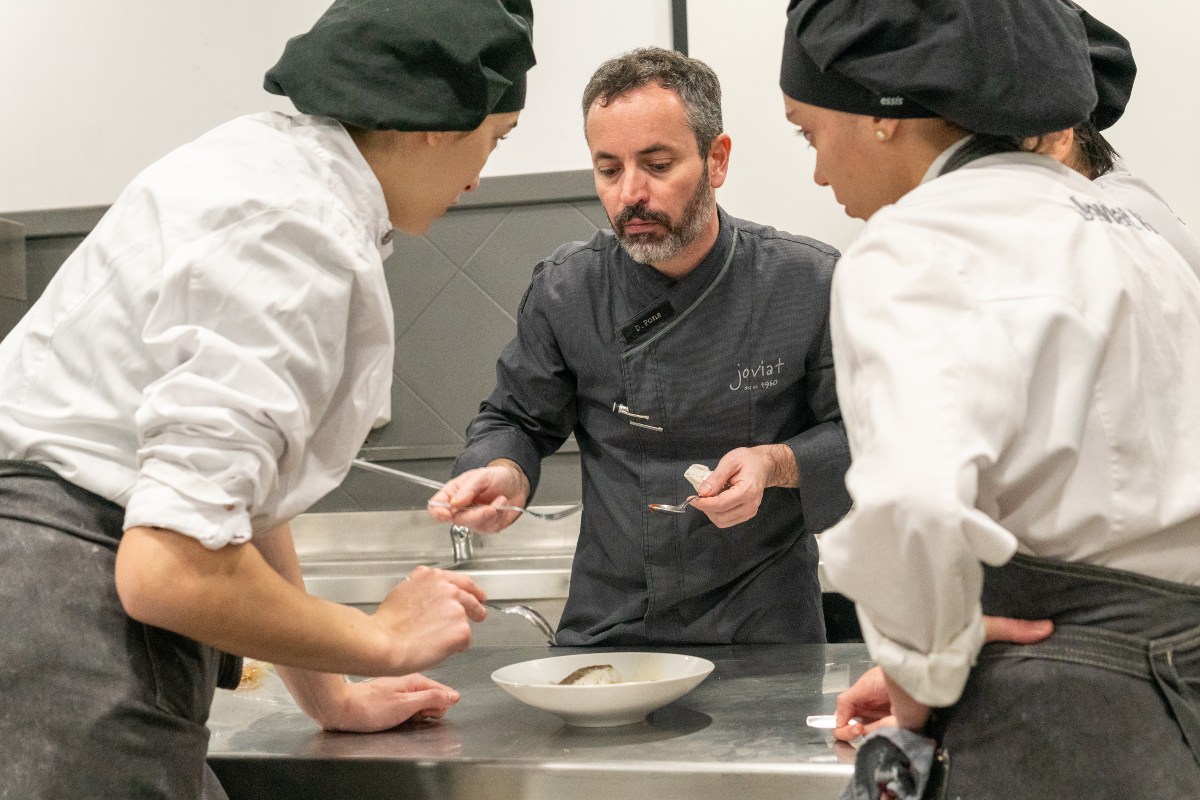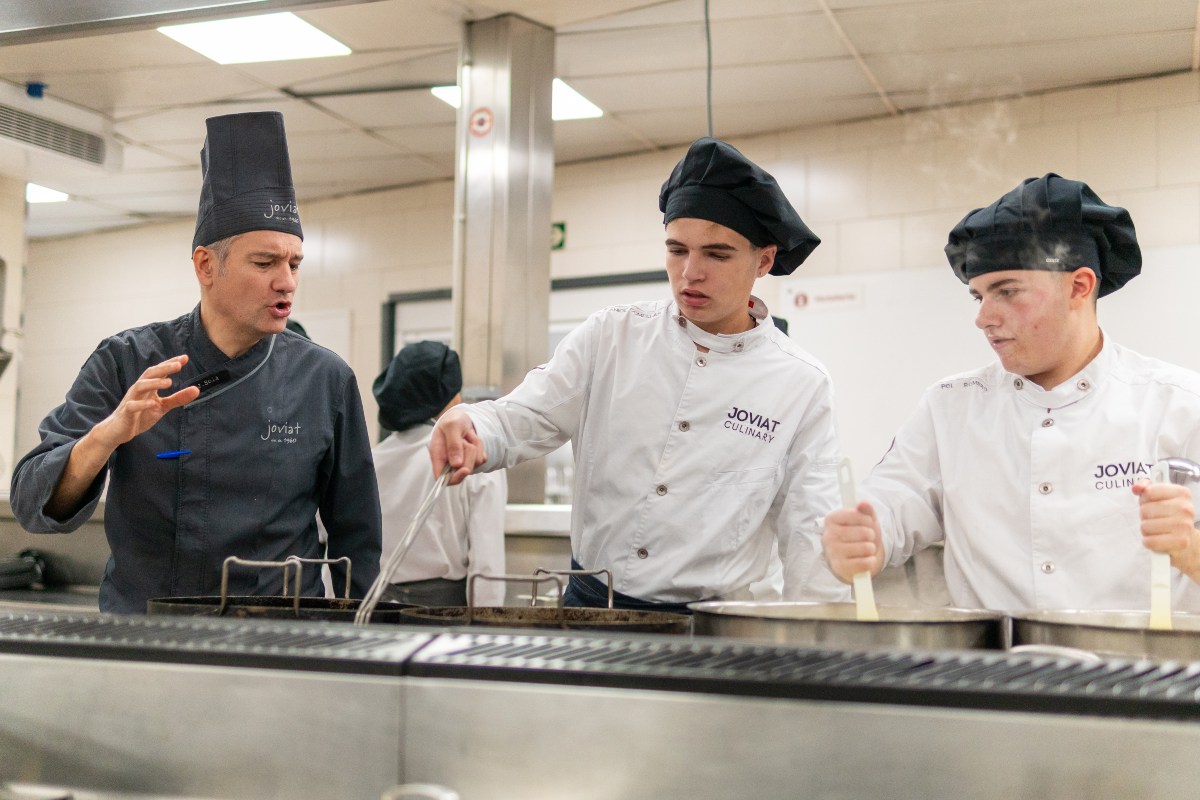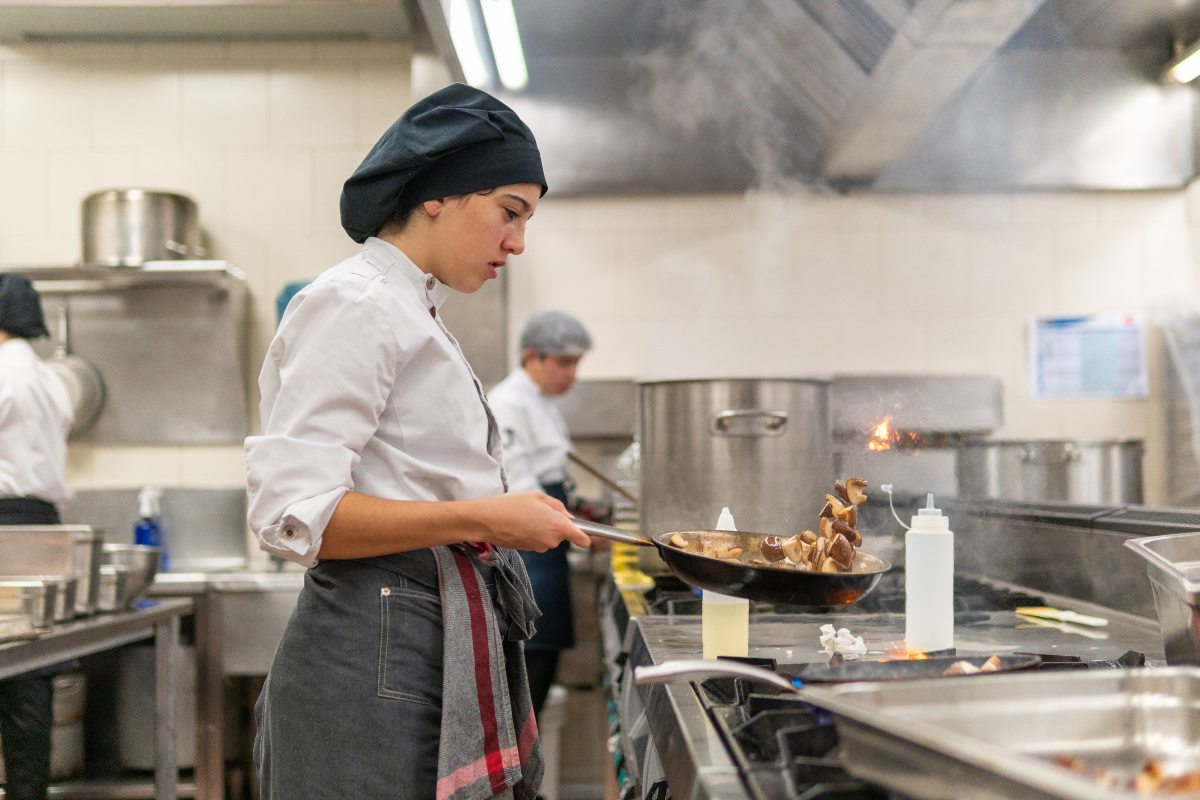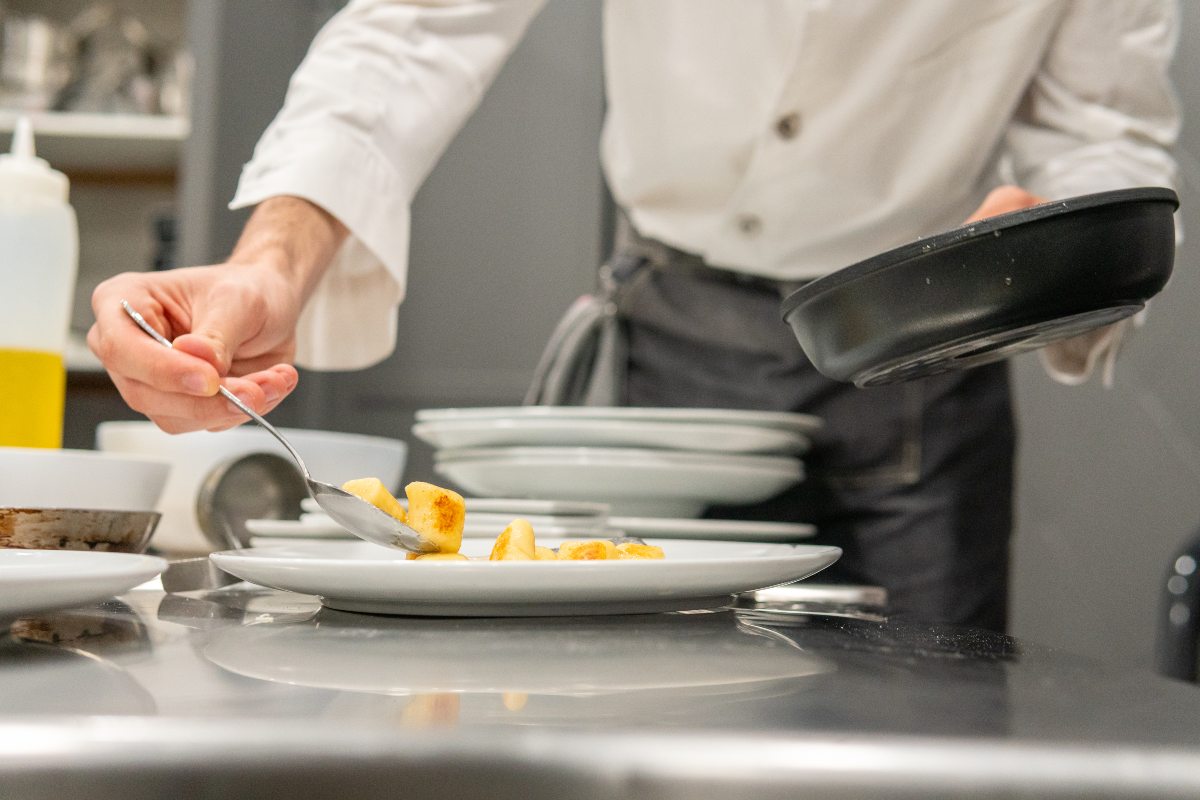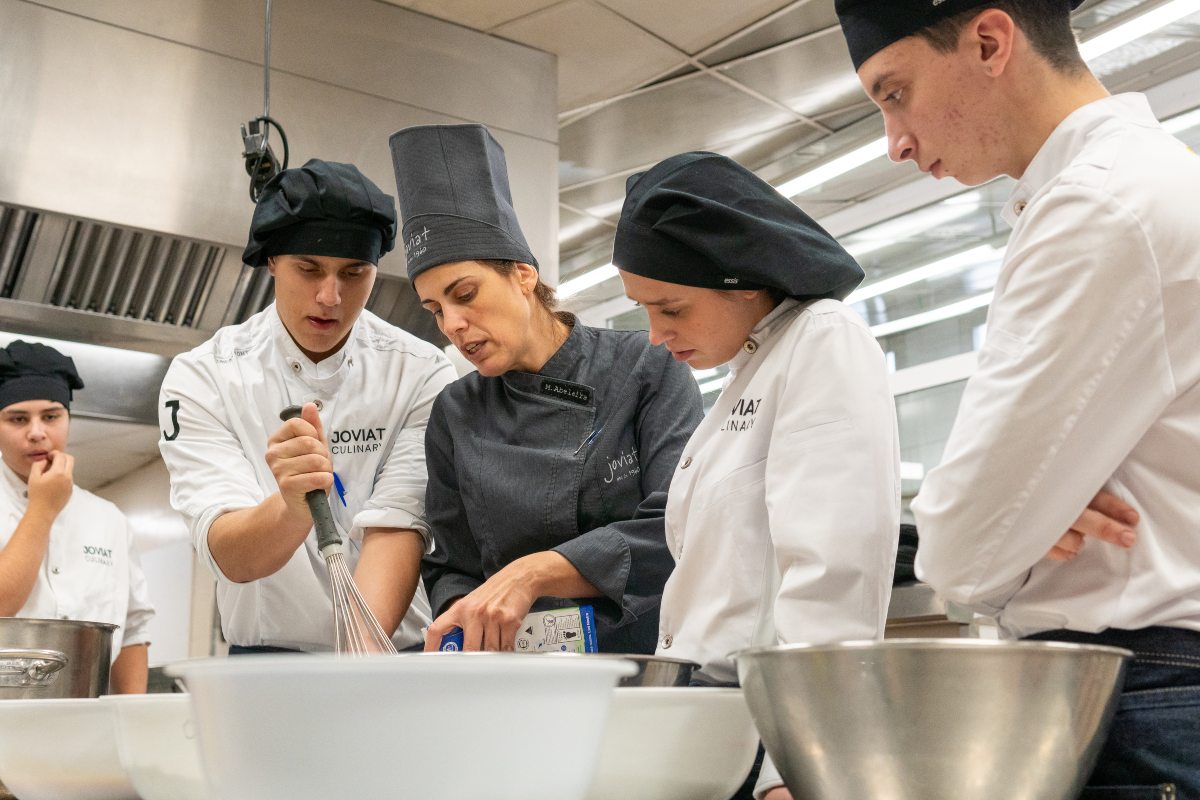Get your brochure
Fill in your personal data to receive the brochure
POSTGRADUATE DEGREE IN CULINARY ARTS
Discover the prestigious Master’s Degree in Culinary Arts, a program offered in collaboration between JOVIAT and UManresa Universitat VIC – Universitat Central de Catalunya. Designed to cultivate world-class culinary professionals, this program combines traditional techniques with modern innovations to prepare you for success in the dynamic culinary industry. Join us and elevate your culinary expertise to new heights.
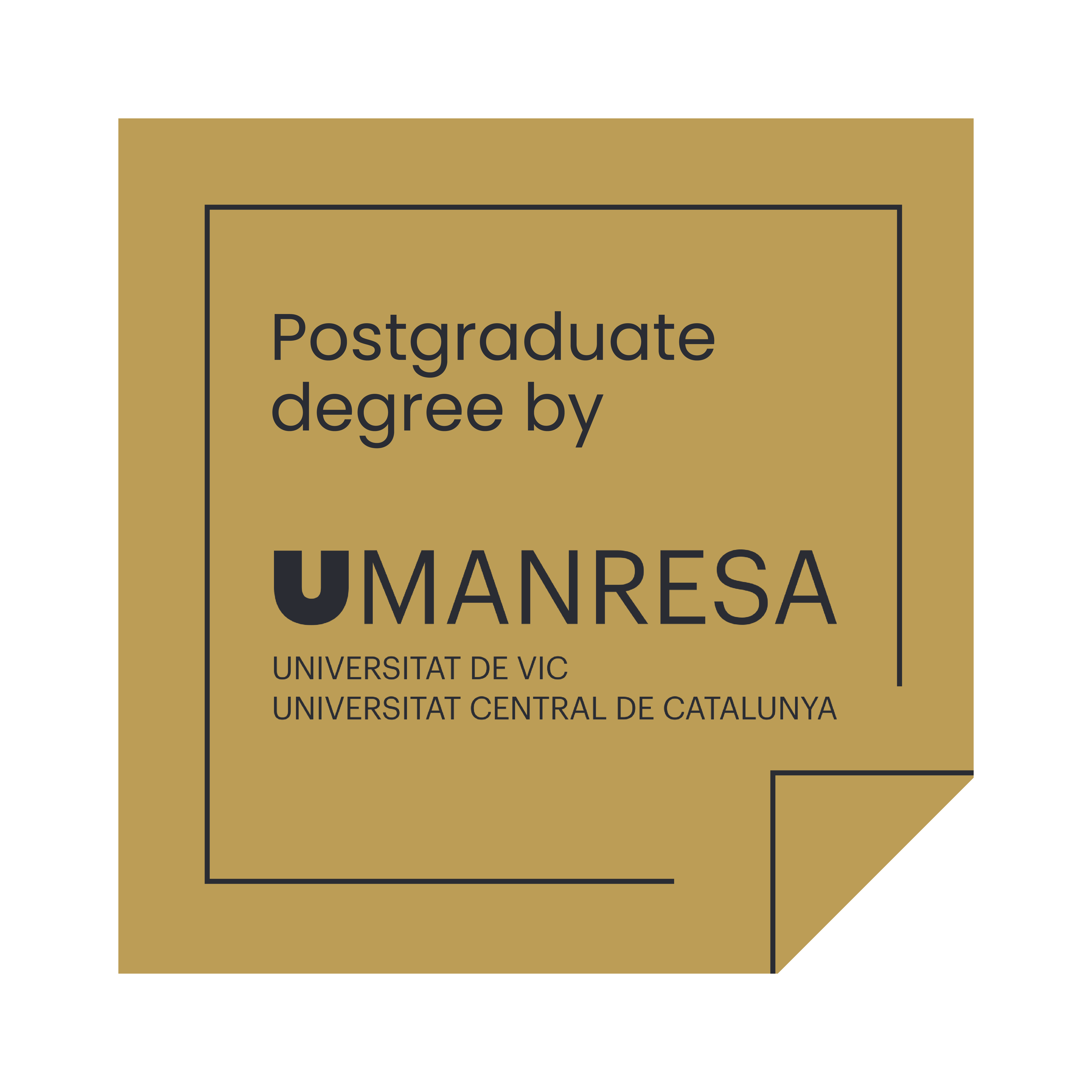
Curriculum
MODULE 1
General Knowledge of Catalan Cuisine
Credits: 1,20 ECTS
Objectives: Understand historical roots, local ingredients, traditional techniques, cultural context, regional diversity, international influence, sustainability and innovation.
Contents: History of Catalan cuisine, local products, traditional Catalan cuisine, Km0 – closing the circle.
Faculty: Cristian Nova, Daniel Pons, Jordi Solà, Màrius Ferrer, Oriol Margalef.
Locations: Fundació Alicia, Prodeca, Restaurant 7 Portes, Restaurant El Casals.
MODULE 2
Recognition, Handling, and Cooking of Products
Credits: 11,62 ECTS
Objectives: Learn product recognition, safe and hygienic handling, preparation and cutting techniques, cooking methods, innovation in cooking and environmental responsibility.
Contents: From the field, with fish, with meat, from the pantry.
Faculty: Cristian Nova, Daniel Pons, Jordi Solà, Màrius Ferrer, Oriol Margalef.
Locations: Joviat, Horts del Bages, Mas Portell, Celler Collbaix, La Tofonera.
MODULE 3
Traditional Spanish Cuisine vs. Avant-Garde Cuisine
Credits: 1,50 ECTS
Objectives: Understand and compare traditional and avant-garde Spanish cuisine, regional diversity, emblematic dishes and modern techniques.
Contents: Traditional Spanish cuisine (Galicia, Basque Country, Andalusia), avant-garde cuisine (modern tapas).
Faculty: Cristian Nova, Daniel Pons, Jordi Solà, Màrius Ferrer, Oriol Margalef.
Locations: Joviat.
MODULE 4
Traditional Catalan Desserts and Preparations
Credits: 8,00 ECTS
Objectives: Master traditional Catalan dessert preparations, understand their history and culture, innovate with traditional techniques.
Contents: creams and flames, traditional cakes, meringues, pâte à choux, mousses, sweet and savory puff pastries, brioches, canapés, traditional breads, tea cakes, tartlets, shortcrust pastry, ice cream, panellets, classic and modern restaurant desserts, decorations of chocolate.
Faculty: Cristian Nova, Jordi Pujol, Jordi Solà, Montserrat Abelaira, Oriol Margalef.
Locations: Joviat, Torrons Vicenç.
MODULE 5
Beverages
Credits: 2,40 ECTS
Objectives: Learn the technical and transversal skills related to the work of a sommelier, understanding the production and tasting of various beverages.
Contents: History and evolution of viticulture, morphology of tasting, wine regions of Catalonia, vermouth, beer, sweet wines, vinegar.
Faculty: Carles Muray, Sergi Figueras, Ferran Centelles, Josep Pelegrín.
Locations: Oller del Mas, Celler Abadal.
MODULE 6
Validation Project
Credits: 1,60 ECTS
Objectives: Ensure students demonstrate the competencies learned, through the development and presentation of a culinary project.
Contents: Development and presentation of a culinary project.
Faculty: Daniel Pons, Jordi Pujol, Josep Pelegrín, Màrius Ferrer.
Locations: Joviat.
MODULE 7
Practicum
Credits: 6,40 ECTS
Objectives: Provide comprehensive practical experience in a real work environment, applying knowledge acquired during the course.
Contents: Practical training in collaborating establishments.
Faculty: Daniel Pons (Practicum tutor).
Locations: Partner establishments.
Methodology
Classroom Sessions: Most sessions will be conducted with the entire class group from Monday to Friday focusing on guided learning. This setup facilitates constant interaction between students and instructors, promoting a collaborative learning environment.
Training at Work Centers: This part of the program is designed to help students acquire technical and cross-functional competencies related to each module. The “learning by doing” approach in real work environments is crucial for developing practical skills and applying theoretical knowledge.
Learning Activities and Assessment:
- Content Introduction and Master Classes.
- Practical Exercises.
- Document Analysis.
- Reading and Viewing Material.
- Teamwork.
- Oral Presentations.
- Validation of competencies through rubrics and minimum evaluation standards.
Learning and evaluation activities
- Content Introduction and Master Classes.
- Practical Exercises.
- Document Analysis.
- Reading and Viewing Material.
- Teamwork.
- Oral Presentations.
- Validation of competencies through rubrics and minimum evaluation standards.

